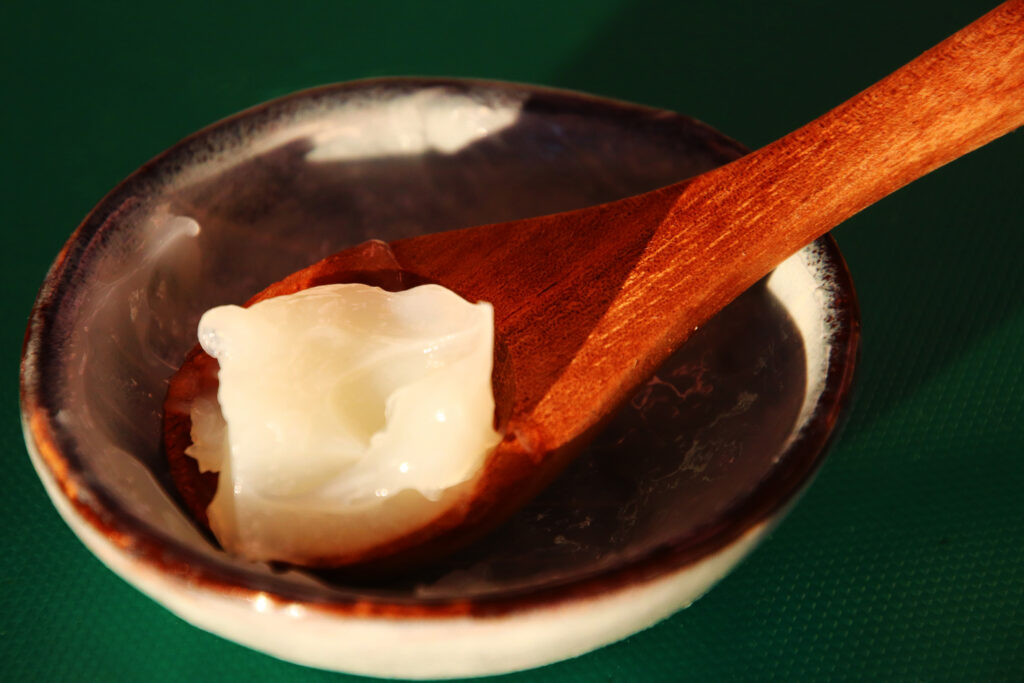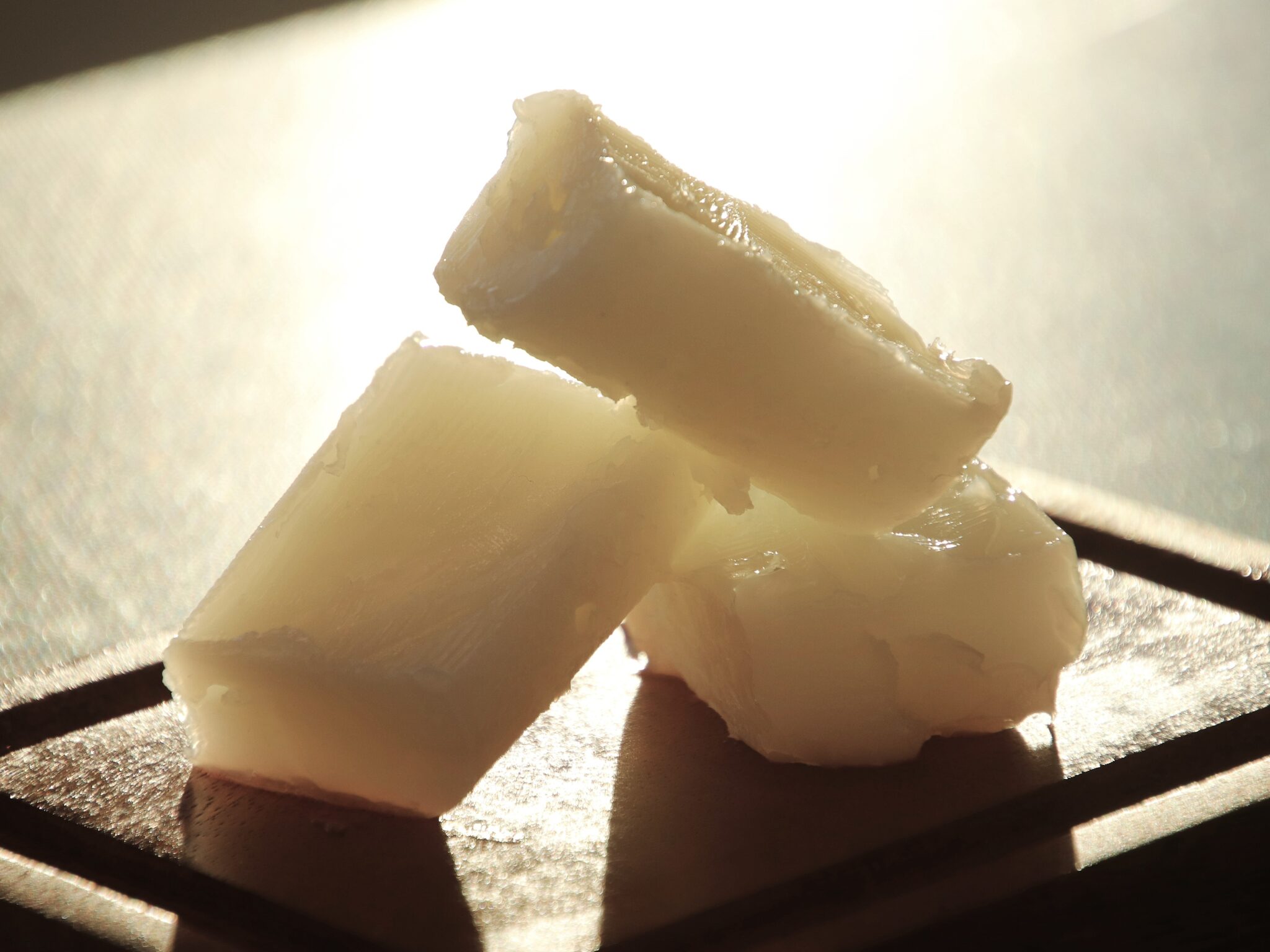Melt&Marble Scales Up Production of Precision-Fermented Fats with New HQ, Eyes US Launch for 2025
5 Mins Read
Swedish food tech startup Melt&Marble has moved into new headquarters and scaled up production of its precision-fermented fat, which can be used in alternative meat and dairy applications. The company is aiming for a 2025 launch in the US.
Melt&Marble, which makes yeast-derived fats from precision fermentation, has scaled up its production to a cubic-metre bioreactor scale, as it eyes a market launch in the US next year.
To support its scale-up efforts further, the Swedish startup has expanded into a new headquarters facility in Gothenburg, which boasts state-of-the-art molecular biology and microbiology labs, pilot-scale bioreactors, and a test kitchen to explore food applications for its fat.
With the latest scaling achievement, it can produce a few kgs of product per batch, but the company plans to increase its bioreactor capacity to tens of cubic metres in the coming months, which would yield hundreds of kgs in each run. Melt&Marble has inked a partnership with a European production partner to reach commercial scale, which will eventually enable it to manufacture tens of tonnes of product per batch.
“We are excited about the achievements to date,” says co-founder and CEO Anastasia Krivoruchko. “In the last months, we constantly improved key performance indicators related to rate, titre and yield, successfully achieving metrics relevant for commercial-scale and demonstrating the scalability of our process.”
How Melt&Marble ferments yeast to make fats for alt-protein

Founded in 2016, Melt&Marble has raised €5.75M in total funding so far. The company’s first product, MeatyMarble, is similar to beef and pork fats in terms of composition and properties, and has been designed to replace plant-based fats like coconut oil in meat alternatives to enhance their flavour profile and sustainability credentials, explains Krivoruchko.
“It is currently very difficult to source fats in a sustainable way as most plant-based sources are grown in tropical regions, where they’re often associated with massive deforestation and loss of biodiversity, while animal-based fats are associated with factory farming and the massive sustainability challenges of that industry,” she says. “At the same time, the demand for fats is increasing, so new production technologies are desperately needed. Precision fermentation provides a method of sourcing many types of fats in a way that is deforestation free, sustainable, and localised.”
To produce the yeast-derived fat, the company employs precision fermentation processes through its tech platform, which can engineer the fat metabolism of yeasts to get them to produce any fats desired. “We do this by tweaking the fat synthesis pathways of these yeasts to produce specific types of fatty acids and assemble these fatty acids into fat structures in specific ways inside the yeast,” says Krivruchko. “With this technology, we can create yeasts that produce fats similar to meat fats, dairy fats, cocoa butter, palm oil, or completely new fats with new properties.”
The yeast is grown in a bioreactor with sugars and minerals over a few days, which is then harvested to extract the fat. “Right now, we’re using sugars that can be derived from various sources depending on where we set up commercial production (like corn, sugarcane, sugar beet, etc.),” she says. “We’re also experimenting with some circular feedstocks (e.g. side/waste streams from different industries).”
As for the yeast species, she reveals it is one that’s already commonly used in the food industry and recognised as an ingredient safe for human consumption. “Once we create a production yeast strain with desired properties (such as desired fat composition and performance parameters), we can use this strain over and over again to produce the fat,” she notes. “The same type of process can be used with different yeast strains (producing different fats) and over different scales and geographies.”
Price parity crucial as Melt&Marble tests fat with partners

For meat alternatives, texture is crucial – in the US, this is the element of vegan food that consumers dislike the most, while in the UK, 51% of people call taste/texture the biggest factor for eating fewer plant-based meat products. Even globally, texture is as important as their conventional counterparts for 75% of consumers, but only about 60% are actually satisfied with the former.
“Palatability remains a challenge in the animal-free food space and our fats are an extremely effective way to address that by replicating the taste experience consumers crave,” says Melt&Marble chief business officer Thomas Cresswell. And when it comes to using precision-fermented ingredients in vegan meat analogues, there is already precedent for success here. Californian producer Impossible Foods, which claims it is the fastest-growing plant-based meat brand in the US, employs precision fermentation to produce its heme ingredient, which gives its burgers the ‘bleeding’ effect.
“We see a great deal of interest from industry players in our technology both in Europe and in the US, because it allows us to tune the composition and properties of our fats and create animal-free ingredients that are both delicious and sustainable,” says Cresswell.
But apart from just meat analogues, Melt&Marble is also testing its fat in alt-dairy and personal care applications with different partners to gain a “more granular understanding” of the most suitable formualtions and applications for its products. “Once these tests are complete, we expect some of them to be converted to offtake agreements,” reveals Krivoruchko.
“Within the alternative protein sectors, precision fermented fats provide opportunities to mimic the functionalities of animal fats without using animals, and impart better sensory properties to these products,” she says. “Achieving taste parity with conventional products like meat and dairy will be key to expanding the market for animal-free alternatives and making our food system more sustainable overall.”
Krivoruchko adds that initially, its fat will be “a bit more expensive to produce” than typical plant-based fats. “However, in the long term, and as we achieve economics of scale, it will be possible to achieve price parity even with commodity plant-based fats.” She explains that despite its yeast strain already being used in food applications in the US and the EU, Melt&Marble requires regulatory approval as it has modified its host organism’s metabolism to produce specific fats, and because it’s a novel way of producing fats.
The company is now in the process of assembling a regulatory dossier for the US, and expects to be market-ready by early 2025. Europe, however, will take a little longer “due to a more complex regulatory process”. Krivoruchko also confirms that the company is currently fundraising. “The capital would be used for further scale-up, further improving unit economics, and preparation for market launch,” she says.
Melt&Marble is among a host of startups innovating with fats for better alternative proteins. Australia’s Nourish Ingredients and California’s Yali Bio both use precision fermentation to produce fats and lipids. Others innovations in this space include San Francisco-based Lypid‘s PhytoFat for plant-based meat, (which is the star of its new meatballs), Swedish startup Mycorena‘s fermented fungi-based fat, Barcelona-based Cubiq Foods‘s omega-3, Hong Kong-headquartered OmniFoods‘ vegan OmniNano fat (which mimics the juiciness of conventional meat), and Californian AI-led startup Shiru‘s OleoPro plant fat for alt-protein applications.



